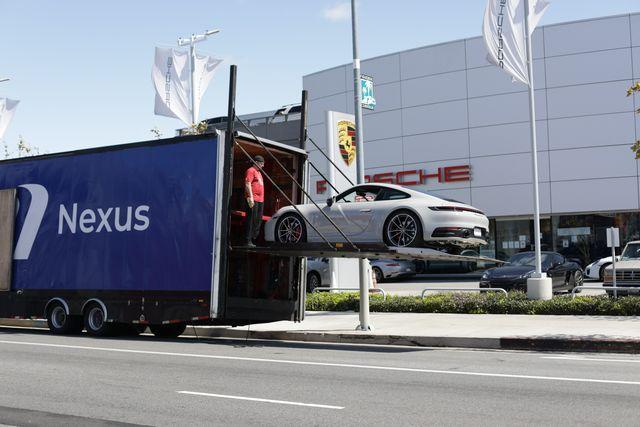Did you know that 69% of Americans would consider a used vehicle for their next vehicle purchase? With so many Americans looking to purchase pre-owned vehicles, you can sell your own car.
It can be difficult and frustrating to sell a car, especially if it's your first time. Before putting your automobile on the market, there are a lot of things to think about, and some blunders could wind up losing you a lot of money.
Keep reading to find out what to watch out for when selling a car.
Pricing Your Car Incorrectly
When selling a car, setting the proper price is crucial since it has a direct impact on the possibility of luring potential buyers and the success of the sale. Look at the Blue Book car value when determining your listing price.
If you overcharge for your car, potential buyers who can find comparable vehicles for less money may be turned off. Additionally, if it takes longer to sell, the value of the car can decrease even more.
On the other hand, if you price your car too low, potential buyers may overlook it or think it is of worse quality due to the perception that something might be wrong with the vehicle. Additionally, you can end up losing money on the deal.
If you aren't selling your car locally you also want to look into transport costs. You can use a car shipping calculator to determine how much you need to add to the cost to cover shipping costs.
Not Disclosing Car Problems
Always disclose any issues with your car. It is critical to be open and honest about any problems an automobile may have when selling it.
You have an ethical duty as a vendor to inform prospective buyers of any known issues with the vehicle. Failure to do so may have negative legal, financial, and reputational effects on you as a trustworthy supplier.
You may win potential purchasers' trust by being open and honest about the condition of the vehicle. This can make customers feel more at ease about the purchase and raise the possibility of a profitable sale.
Failure to report the car's flaws could result in legal troubles and even costly lawsuits. You can completely prevent these complications by being honest about any problems.
Losing Relevant Paperwork
Make sure you have all the essential documentation before selling your car. When selling a car, losing important papers can lead to a number of issues and possibly halt the transaction completely.
You might be unable to complete the deal without the required documentation. For instance, you'll need a title and registration to transfer ownership to the buyer. If you are unable to present these records, the sale might not go through.
Not Offering Test Drives
The process of purchasing an automobile must include test drives. A test drive enables prospective customers to get hands-on time with the vehicle. The buyer's decision regarding whether the car is a good fit for their needs and tastes can be aided by this encounter.
Allowing a test drive shows that you are confident in the condition of the vehicle and have nothing to hide. This can boost the chance of a successful transaction by helping to establish trust with potential customers.
It's a smart idea to provide a test drive when selling your car. It establishes trust, enables prospective buyers to test drive the vehicle, aids in determining their level of interest, and may even enable you to resolve any issues and negotiate the price.
Falling Privy to Scammers
Be careful when considering online car buyers. Scammers frequently pay for the car using dubious payment methods, like fake checks. You could lose both the car and the money if you accept these payments.
These criminals might also engage in dishonest practices like forging documents or assuming false identities, which could get you in legal trouble. Any illegal activity that takes place involving the car may result in you being held accountable.
Dealing with con artists can be very time- and effort-consuming. They might hold protracted discussions, request additional details, or make unreasonable demands, which would add to the length and complexity of the sale process.
Shutting Down Negotiators
When selling a car, it is expected that buyers will negotiate the price. Be prepared to negotiate and have a bottom-line price in mind. Negotiations can help you maximize your profits, and build a positive relationship with the buyer.
Being willing to negotiate makes it possible for you to adjust to the market. If you are having trouble selling the car for the asking price, lowering the price may enable you to better meet consumer demand and draw in more purchasers.
Price haggling can aid in closing the deal, especially if you are using an online car auction site. The competition of an auction may provide the customer with the push they need if they are hesitant or uncertain about the price.
Not Knowing How to Transfer Ownership
When selling a car, it is essential to transfer ownership properly. Before selling you should familiarize yourself with your state vehicle transfer requirements.
A bill of sale and your signature on the title transfer are required. To transfer ownership, the title must be signed by the buyer and the seller. Verify that the date is accurate and that the signature corresponds to the name on the title.
Be careful to complete the required documentation and inform the DMV. Legal repercussions and even fines may result from failure to transfer ownership.
Once the ownership transfer is complete, cancel the auto insurance coverage. This makes sure that you won't be held responsible for any mishaps or events that might happen after the sale.
Be Mindful When Selling a Car
Although it can be a difficult process, selling a car can also be lucrative if you follow the right procedures. You can assure a smooth and successful transaction by staying away from these typical blunders.
Made a sale that isn't local? Use Nexus Auto Transport to get your sold vehicle to the buyer.



